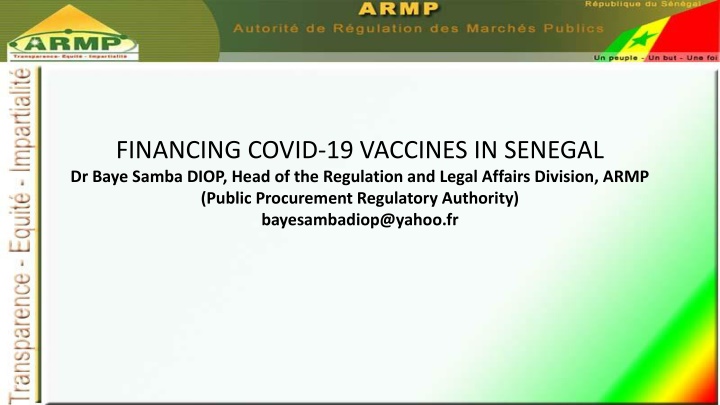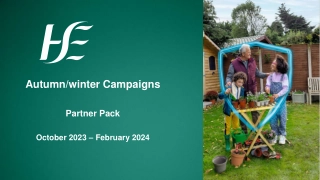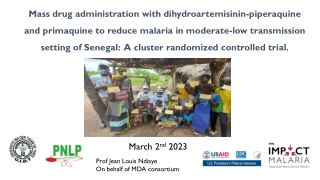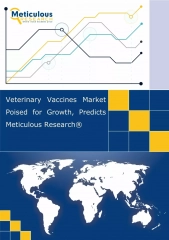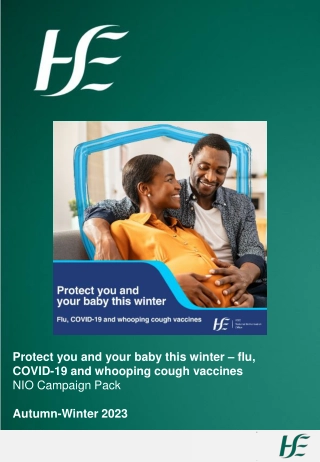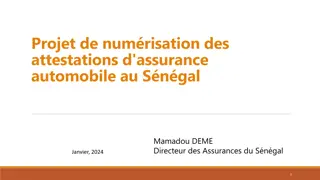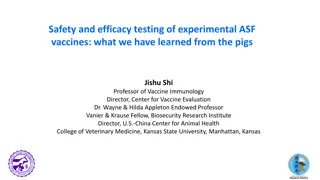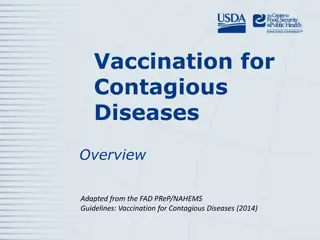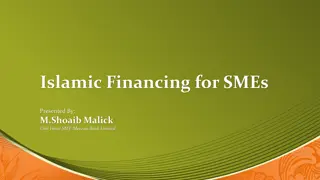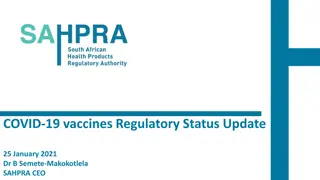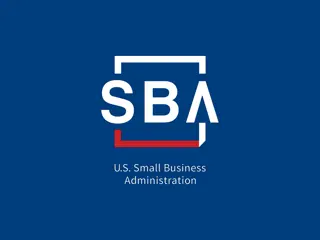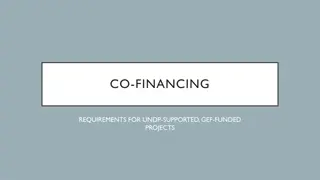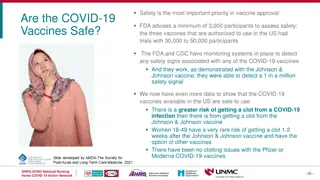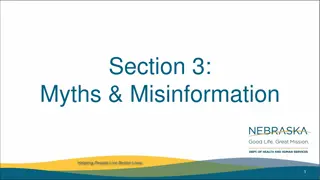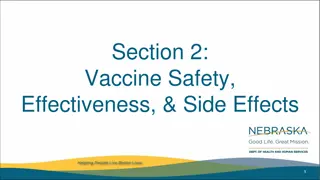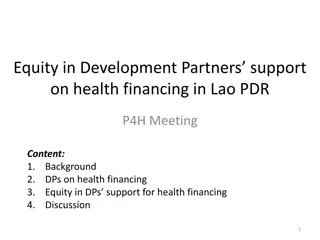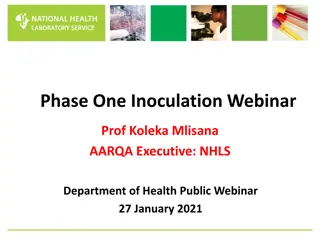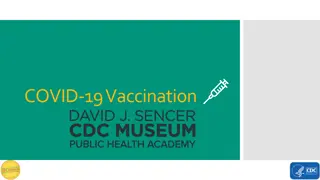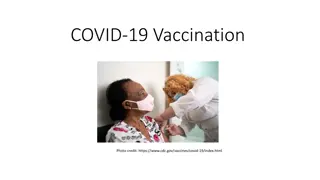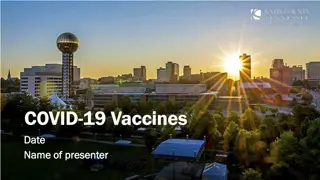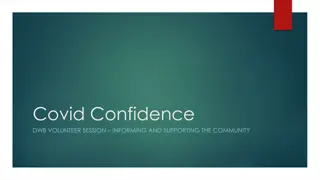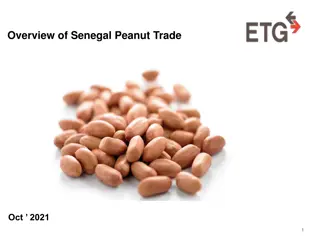FINANCING COVID-19 VACCINES IN SENEGAL
How can Senegal adapt the urgency of COVID-19 response to ensure effectiveness and accountability in public procurement processes? Explore the impact of COVID-19 on Senegal's economy, legal framework, and involvement in the COVAX initiative.
Download Presentation

Please find below an Image/Link to download the presentation.
The content on the website is provided AS IS for your information and personal use only. It may not be sold, licensed, or shared on other websites without obtaining consent from the author.If you encounter any issues during the download, it is possible that the publisher has removed the file from their server.
You are allowed to download the files provided on this website for personal or commercial use, subject to the condition that they are used lawfully. All files are the property of their respective owners.
The content on the website is provided AS IS for your information and personal use only. It may not be sold, licensed, or shared on other websites without obtaining consent from the author.
E N D
Presentation Transcript
FINANCING COVID-19 VACCINES IN SENEGAL Dr Baye Samba DIOP, Head of the Regulation and Legal Affairs Division, ARMP (Public Procurement Regulatory Authority) bayesambadiop@yahoo.fr
Problem Statement How to ADAPT the urgency in regard to the purchase of goods and services to fight against COVID-19, TO THE NEED FOR EFFECTIVENESS AND ACCOUNTABILITY in the procurement of public contracts?
IMPACT OF COVID in Senegal The weakness of our economy, the low standard of living and the way society is organised, make it difficult to implement total lockdown. The State has already committed the sum of 1 000 billion FCFA to establish a Fund against the effects of COVID- 19 called "FORCE-COVID- 19 which supports the national economy, and a further 69 billion FCFA to assist households in this crisis situation. The pandemic will certainly have negative consequences on our economy, which enjoyed very high growth rates, 6% on average, since 2014. And our prospects for emergence in 2035 might well be compromised by these events. The growth rate dropped from 6% to 1.7% in 2020.
LEGAL Framework The State of Senegal issued Decree No. 2014-1212 of September 22, 2014 establishing the Public Procurement Code for the purpose of reforming the national public procurement and management system The President of the Republic, with a view to speed and responsibility, issued Decree No. 2020-781 of March 18, 2020 establishing an exemption from the Public Procurement Code Subsequently, Decree No. 2020-1774 of September 16, 2020 repealed Decree No. 2020-781 of March 18, 2020 Based on Decree No. 2014-1212 of September 22, 2014 establishing the Public Procurement Code, the CRD (Dispute Resolution Committee) issued a favourable opinion on the List of Essential Medicines and Health Products to be used for emergency medicine
THE COVAX INITIATIVE Senegal is part of the joint "Covax initiative, a mechanism headed by the World Health Organization, for the group/collective purchase of vaccines. Meanwhile, the authorities have also been negotiating with China for the acquisition of Sinopharm doses and recently with India as well (batch of 324,000 doses of the Astra Zeneca/Oxford vaccine produced under license by the Serum Institute of India, as part of the Covax initiative led by the World Health Organization (WHO) and GAVI, the Vaccine Alliance). With the acceleration of COVID-19 vaccine deliveries, the response to the pandemic has gained a much awaited momentum. As of February 24, 2021, over 14.6 million doses of the vaccine have been delivered to 22 African countries through COVAX, a joint effort led by the Coalition for Epidemic Preparedness Innovations (CEPI), the GAVI Alliance and the WHO, in partnership with the United Nations Children s Fund (UNICEF).
COVAX OBJECTIVES To give all countries of the world, regardless of their income level, equitable and affordable access to safe and effective vaccines against COVID-19 The rapid and effective availability of vaccines all over the world to stop the spread of the pandemic, and reduce its socio-economic impacts To work with States and manufacturers to ensure that COVID-19 vaccines are available worldwide, in both high-income and low-income countries.
Institutional framework of the response UNICEF draws on its experience as the world's largest vaccine buyer and collaborates with manufacturers and partners on the procurement of COVID-19 vaccine doses, as well as on freight, logistics and storage. The Coalition for Epidemic Preparedness Innovations (CEPI) is an innovative partnership between public, private, philanthropic and civil organisations, created in Davos in 2017 to develop vaccines that would put an end to future epidemics. The Access to COVID-19 Tools (ACT) Accelerator is an innovative new global collaboration, that aims to accelerate the development and production of COVID-19 diagnostics, therapeutics and vaccines, and to ensure equitable access to them. It was created following a call from G20 leaders in March, and then launched by the WHO. UNICEF and the WHO, are other international bodies that require no introduction, as they are so well known.
Procurement PROCEDURES In Senegal, public procurement, under article 24 of the Code of Obligations (COA), is governed by the principles of the freedom of access to public procurement, equal treatment of candidates and the transparency of procedures. Contracts awarded pursuant to financing agreements or treaties, are governed by the Public Procurement Code, subject to the application of any provision to the contrary resulting from the procedures provided for by said international agreements or treaties (Article 3 of the Public Procurement Code in Senegal) The State also has the possibility of concluding Covid-19 vaccine procurement contracts in application of the provisions of the public international trade regulations.
Procurement PROCEDURES The conclusion of contracts by private treaty is an arrangement set up by the Senegalese Public Procurement Code (art 76 of the Public Procurement Code) whereby the contracting authority engages in direct discussions with one or more economic operators and awards the contract to the candidate it has selected In the case of an international public contract, the State can also issue an international call for tenders for the acquisition of health-related products, works and services As regards international calls for tenders, the public invitation to tender notices are included in a publication with wide international distribution (Decree 2014-1212 of September 22, 2014). There are two types of International Calls for Tenders (AOI): a restricted invitation to tender and an open invitation to tender.
Collaboration ARMP/AC (Contracting Authorities) During the pandemic, the ARMP CRD (Dispute Resolution Committee) gave special permission to the contracting authorities to send submissions electronically, instead of using the "original hard copy version of the documents. Force majeure is applicable if the contract holder has been unable to perform its obligations due to a COVID-19-related situation, that has arisen from unforeseeable circumstances and is outside the will of the parties. By notice n 06/2020/ARMP/CRD of April 1, 2020, the CRD recommended that the contracting authorities comply with measures implemented by the authorities to fight against the pandemic during the tender opening sessions.
Not to conclude Thank you for your attention
